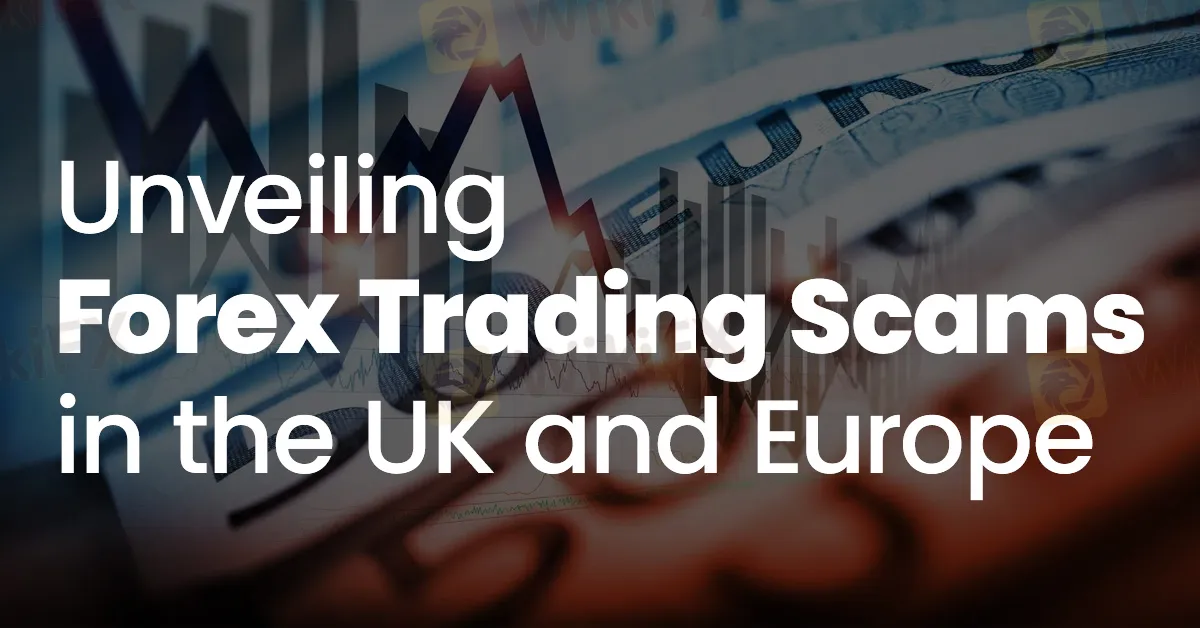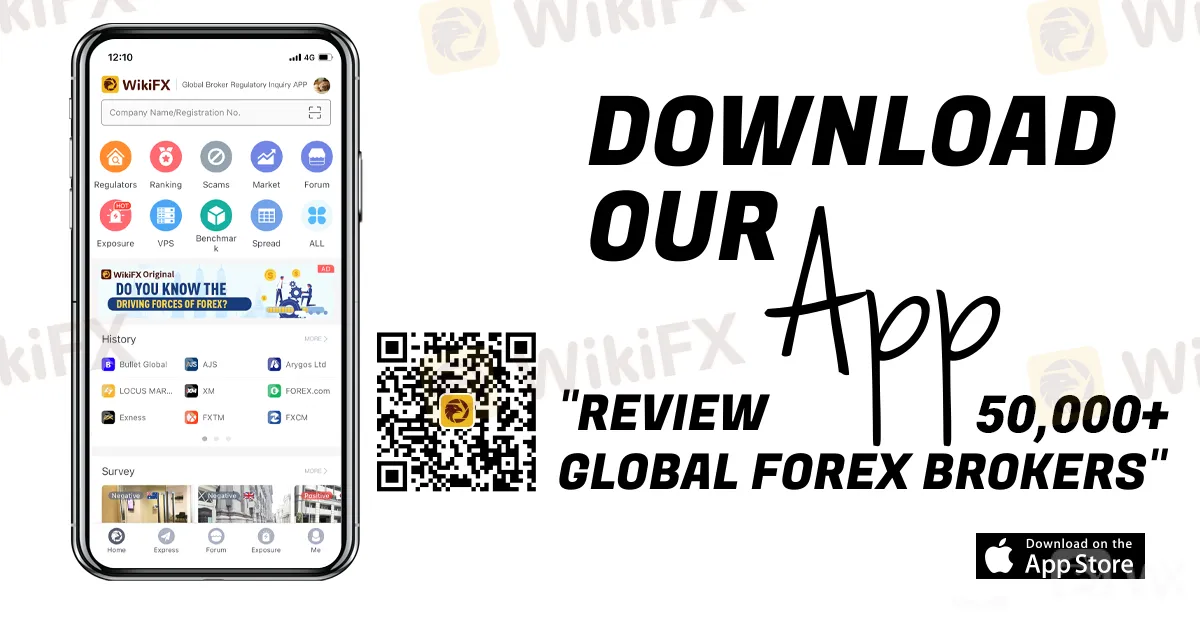简体中文
繁體中文
English
Pусский
日本語
ภาษาไทย
Tiếng Việt
Bahasa Indonesia
Español
हिन्दी
Filippiiniläinen
Français
Deutsch
Português
Türkçe
한국어
العربية
Navigating the Shadows: Unveiling Forex Trading Scams in the UK and Europe
Abstract:In this article, we will delve into the alarming prevalence of such scams, examining the key trends and shedding light on the measures in place to protect investors.

In the fast-paced world of foreign exchange trading, the allure of quick profits often overshadows the lurking dangers of scams. The United Kingdom and Europe, home to a robust financial landscape, have unfortunately not been immune to the rise of forex trading scams. In this article, we will delve into the alarming prevalence of such scams, examining the key trends and shedding light on the measures in place to protect investors.
The Landscape of Forex Trading Scams in the UK and Europe
Forex trading scams have become increasingly sophisticated, exploiting the vulnerabilities of unsuspecting investors. According to recent reports, the UK and Europe have witnessed a surge in fraudulent activities, with fake brokers, Ponzi schemes, and deceptive investment schemes preying on the dreams of wealth seekers.
Understanding the tactics employed by these scammers is crucial for investors looking to navigate the forex market safely. Fake brokers often create an illusion of legitimacy, enticing traders with promises of high returns and low risks. Ponzi schemes, on the other hand, rely on a constant influx of new investments to pay returns to earlier investors, creating a facade of profitability until the inevitable collapse.
Regulatory Measures Against Forex Scams
In response to the escalating threat of forex scams, regulatory bodies in the UK and Europe have intensified their efforts to protect investors. These measures aim to enhance transparency, tighten oversight, and empower authorities to take swift action against fraudulent entities.
Regulatory bodies such as the Financial Conduct Authority (FCA) in the UK and the European Securities and Markets Authority (ESMA) have implemented stringent regulations to curb the activities of unscrupulous actors. However, the evolving nature of forex scams requires a constant adaptation of regulatory frameworks to stay ahead of the game.
Notable Forex Scam Cases in the UK and Europe
Examining specific cases serves as a stark reminder of the real and devastating consequences of falling victim to forex scams. Instances of fake brokers vanishing with investors' funds and Ponzi schemes collapsing in a spectacular fashion highlight the need for heightened vigilance in the forex trading arena.
One recent case involved a fraudulent investment scheme that promised unprecedented returns, attracting investors from across Europe. When the scheme unraveled, it left a trail of financial ruin for those who had placed their trust in the deceptive promises.
Identifying and Avoiding Forex Trading Scams
To shield oneself from the perils of forex scams, it is imperative to recognize the warning signs and exercise due diligence. Red flags include unrealistically high returns, pressure tactics from brokers, and a lack of clear information about the company. Traders should conduct thorough research, verify the credentials of brokers, and seek advice from reputable sources.
This is where educational platforms like WikiFX can play a pivotal role. WikiFX offers a comprehensive database of brokers, providing crucial information about their regulatory status, user reviews, and any reported scams or fraudulent activities. Investors can access this valuable resource to make informed decisions and avoid falling prey to unscrupulous entities.
WikiFX: Your Guardian Against Forex Scams
WikiFX serves as a beacon of trust in the murky waters of forex trading. As a user-friendly platform, WikiFX empowers investors with the knowledge they need to make sound decisions. By offering a wealth of information on brokers, including regulatory status and user reviews, WikiFX enables traders to navigate the forex market with confidence.
To access WikiFX and benefit from its comprehensive database, visit www.wikifx.com and equip yourself with the tools needed to safeguard your investments.
In conclusion, the prevalence of forex trading scams in the UK and Europe underscores the importance of awareness, education, and regulatory diligence. As investors strive for financial success in the forex market, staying informed and utilizing resources like WikiFX can be the key to avoiding the pitfalls of scams and building a secure financial future.

Disclaimer:
The views in this article only represent the author's personal views, and do not constitute investment advice on this platform. This platform does not guarantee the accuracy, completeness and timeliness of the information in the article, and will not be liable for any loss caused by the use of or reliance on the information in the article.
Read more

Alleged Concerns with TradeEU.global's Trading Practices
An individual trader has come forward with allegations of an unfavourable experience while using the services of the broker TradeEU.global.

Lured by False Promises: Malaysian Driver Lost RM218K to an Investment Scam
A 49-year-old e-hailing driver in Malaysia fell victim to a fraudulent investment scheme, losing RM218,000 in a matter of weeks. The scheme, which falsely promised returns of 3 to 5 per cent within just three days, left the individual financially devastated.

SFC Freezes $91M in Client Accounts Amid Fraud Probe
SFC freezes $91M in client accounts at IBHK, SBI, Monmonkey, and Soochow over suspected hacking and market manipulation during unauthorized online trades.

Malaysian Man Loses RM113,000 in Foreign Currency Investment Scam
A 57-year-old Malaysian man recently fell victim to a fraudulent foreign currency investment scheme, losing RM113,000 in the process. The case was reported to the Commercial Crime Investigation Division in Batu Pahat, which is now investigating the incident.
WikiFX Broker
Latest News
What Makes Cross-Border Payments Easier Than Ever?
Trader Exposes Unethical Practices by STP Trading
Saxo & Portuguese Bank Partnership
SEC Fines Broker-Dealers $275K for Incomplete SAR Filings
Lured by False Promises: Malaysian Driver Lost RM218K to an Investment Scam
FTX Sets March 2025 Timeline for Creditor Payouts: What It Means for Investors
What is an Economic Calendar? How it works
Italian Regulator Warns Against 5 Websites
SFC Freezes $91M in Client Accounts Amid Fraud Probe
Bybit Launches Gold & FX Treasure Hunt with Real Gold Rewards
Currency Calculator


